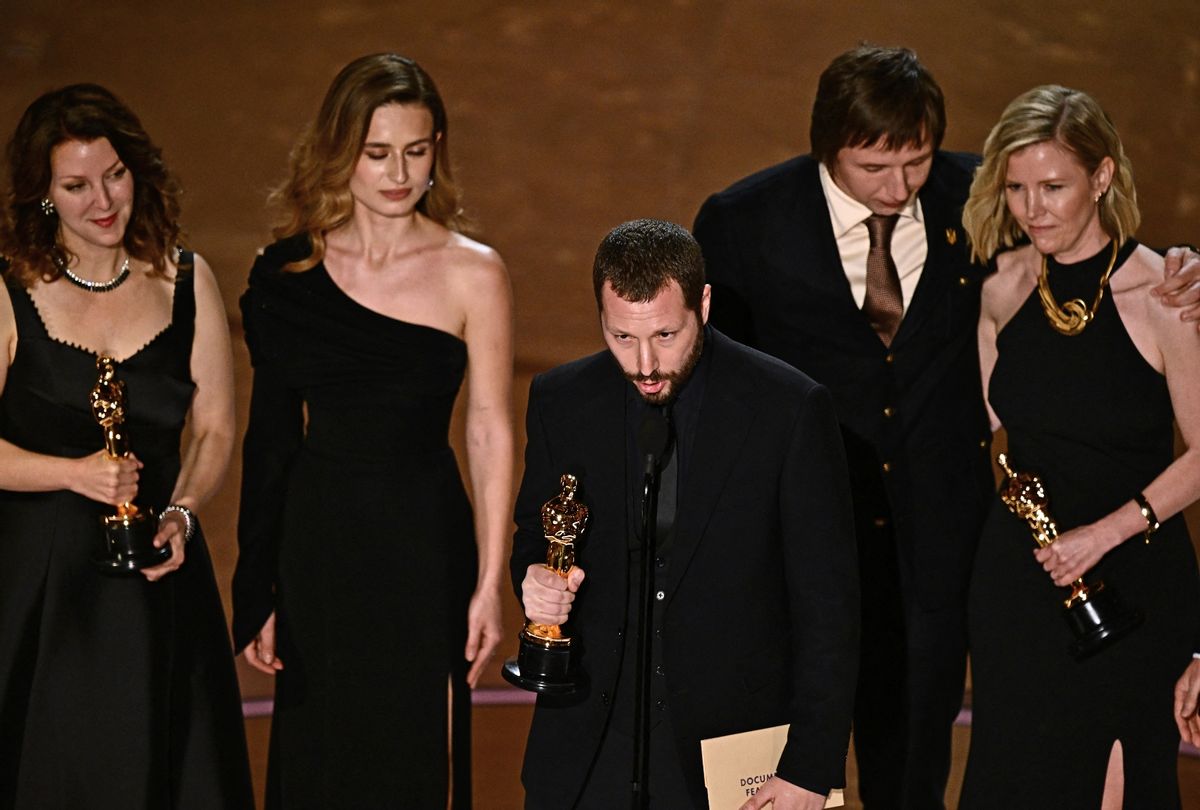Ukrainian journalist and director Mstyslav Chernov's acceptance speech at the 96th Academy Awards Sunday night for the film "20 Days in Mariupol" was one of distinct pain and sorrow.
The film was shot inside the war-torn port city of Mariupol and documented the early stages of Russia's full-scale military invasion of Ukraine at the beginning of 2022. Winning an Oscar for best documentary feature should have been a highlight for Chernov and the team of journalists at the center of the film, however, Chernov's speech acknowledged the lasting emotional impact of and fatalities from the war on Ukrainians.
"I am honored but I will probably be the first director on this stage to say that I wish I had never made this film," he said. "I wish to be able to exchange this for Russia never attacking Ukraine, never invading our cities. I wish to be able to exchange this for Russian not killing 10,000 of my fellow Ukrainians."
Chernov continued that he would rather trade the award and prestige for Russia "releasing the hostages" and "the civilians who are now in their jails."
"I cannot change history. I cannot change the past," he emphasized. "But we all together, you – some of the most talented people in the world – can make sure the history record is set straight and the truth will prevail and the people of Mariupol and those who have lost their lives will never be forgotten. Because cinema forms memories, and memories form history.”

Shares